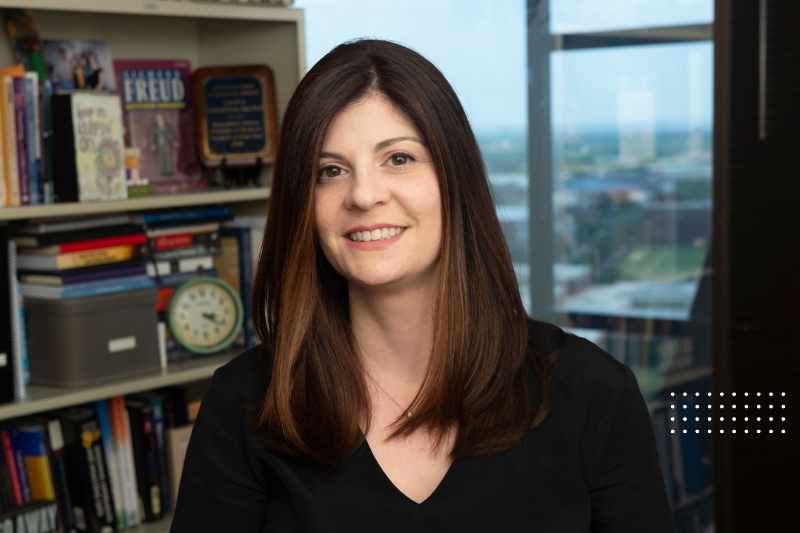Pandemic Education Disruptions Likely Had Little Impact on Anxiety Levels of Autistic Teenagers
Study finds autistic teens' anxiety levels remained consistent amid COVID-19 disruptions to education, whether in-person, remote or homeschooled.

DALLAS (SMU) – The COVID-19 pandemic disrupted education for children worldwide, including those on the autism spectrum. However, a recent study from SMU psychologist Chrystyna Kouros and colleagues suggests there were no differences in the levels of anxiety and depressive symptoms experienced by autistic adolescents who attended school in person v.s. those who attended school remotely or were homeschooled.
Research has shown that the pandemic hurt the mental health of adolescents, overall, and disruptions to their school setting have been cited as a particular challenge. However, Kouros' study, published in Research in Autism Spectrum Disorders, found that those experiencing mental health difficulties during the pandemic were likely already struggling before March 2020.
The research included 81 verbally-fluent autistic children without intellectual disabilities and their mothers. Data was being collected prior to the pandemic, providing unique and valuable before-and-after insights into the impact of COVID-19.
"There have been many anecdotal reports, especially in the media, of remote learning 'causing' children more psychological distress, but what we found did not support that, at least for adolescents on the autism spectrum," said Kouros.
"At the same time, the research did suggest that autistic children who were experiencing symptoms of anxiety and depression before the pandemic were also more likely to be experiencing those symptoms during it. The paper overall highlights a need for more attention and focus on the mental health of autistic adolescents so we can better understand their needs."
The paper's lead author was Audrey Courreges, a clinical research assistant and lab manager at UT Southwestern Medical Center whom Kouros mentored as an SMU student. Research team members also included Naomi V. Ekas at Texas Christian University and Sam Levy, a former SMU undergraduate research assistant.
Research reported in this press release was supported by the Eunice Kennedy Shriver National Institute of Child Health & Human Development of the National Institutes of Health under Award Number R15 HD094279. The content is solely the responsibility of the authors and does not necessarily represent the official views of the National Institutes of Health.
About SMU
SMU is the nationally ranked global research university in the dynamic city of Dallas. SMU’s alumni, faculty and more than 12,000 students in eight degree-granting schools demonstrate an entrepreneurial spirit as they lead change in their professions, communities and the world.